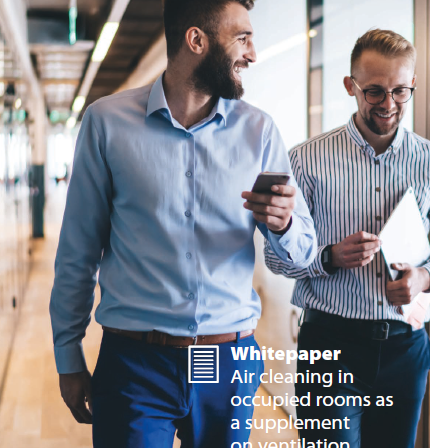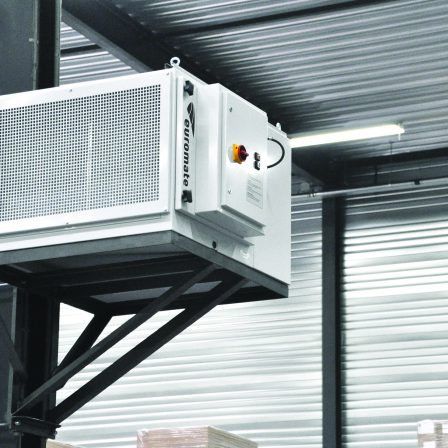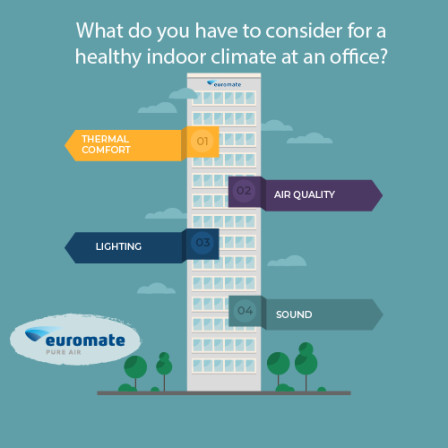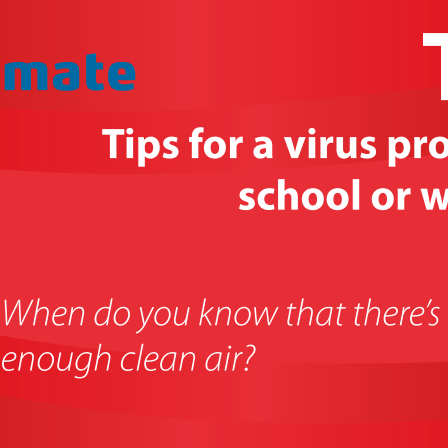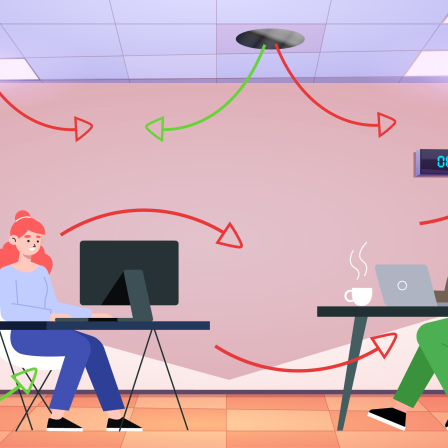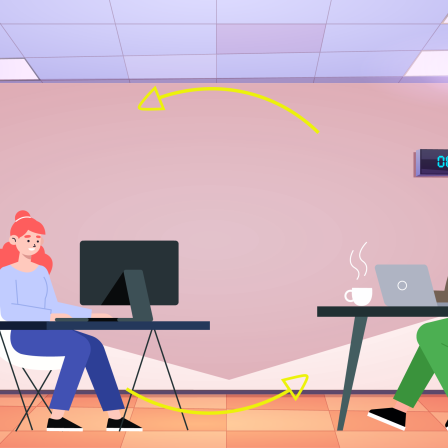Research shows: 7 out of 10 SMEs are struggling with unclear corona guidelines on ventilation
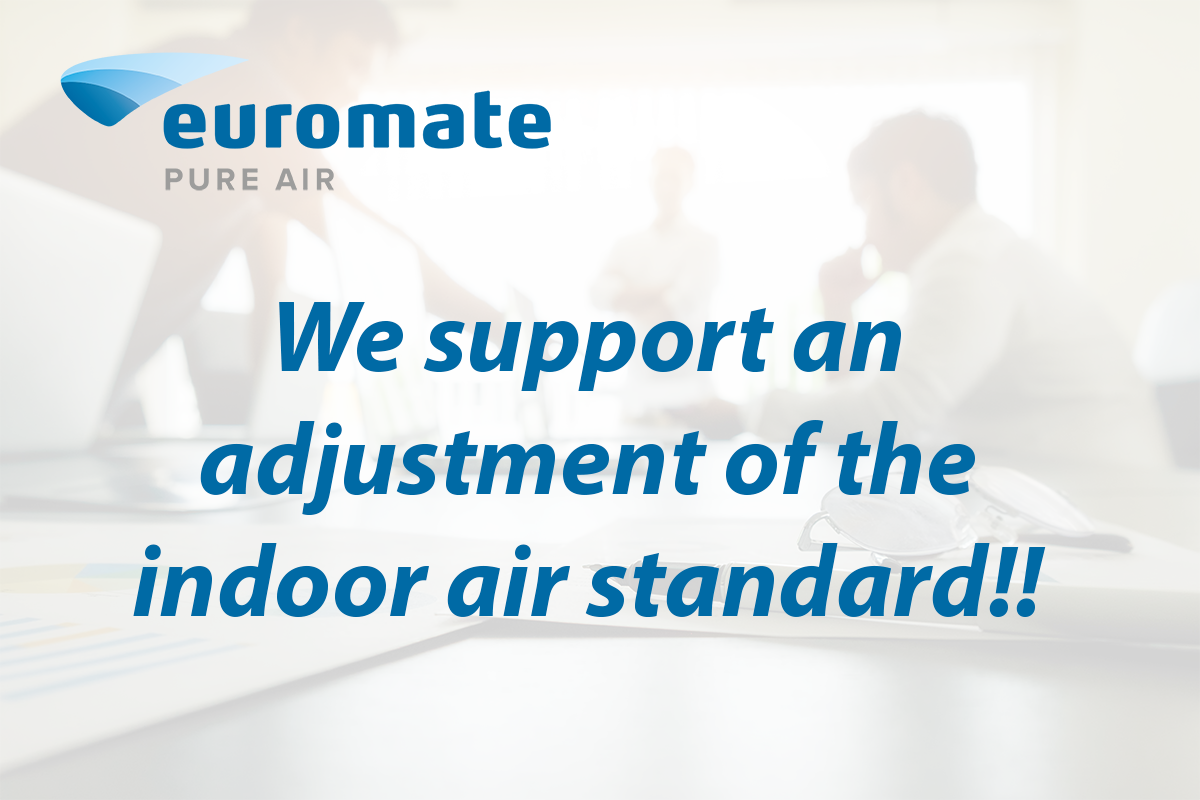
Only a quarter of colleagues feel really safe at the office
After a beautiful late summer, the autumn weather seems to have really kicked in, with rain, clouds and shorter days. It is getting colder, so we have a tendency to close the windows and doors. Is this wise in times of corona, bearing in mind that it has recently become clear that good ventilation is important and that contamination occurs mainly in enclosed spaces? A survey by Euromate of more than 1,000 employees and managers in the SME sector shows that 72 percent of managers are struggling with unclear government guidelines on ventilation. As a result, they do not know what measures to take to make their office corona-proof when it comes to ventilation. They also don’t want to make any alterations to the office because, as they see it, ‘everything is already well arranged’, or because ventilation is not their expertise. Cost also plays an important role. The survey also shows that only 28% of employees feel really safe in the office.
Whereas before the outbreak 9 out of 10 of those surveyed worked mainly at the office, only half of the respondents now go in to work. This has been determined by the employer, until further notice (59.8%). More than half indicated that they are following the RIVM advice to work from home as much as possible (53%). What is notable in this respect is that it applies in particular to people aged under 60 (54%) and much less to people in the higher risk group of 60+ years of age (38.7%).
During lockdown, eight out of ten employees continued to work mainly at the office because there was no other option: their profession did not lend itself to working from home (38.8%), they were required to do so by their employer (28.6%), they had no space at home to work (6.5%) or they did not have the technical resources to be able to work from home (14.2%). Also, 36.9% say that they work more efficiently at the office, and therefore mainly went in to work.
Opening windows and doors: a good thing or a bad thing?
One notable aspect of the study is that the opening of windows and doors was perceived by respondents as both positive (= is sufficient for clean indoor air) and negative (= if there is no safe ventilation system). Opening windows and doors on opposite sides of an office creates ventilation. But as soon as the doors and windows are closed, the contaminated air can no longer escape. Yet only 30% of those surveyed were worried that it will soon no longer be possible to open windows and doors, due to the cold. “This shows that there is still a lot unknown and unclear, because transmission of the virus happens particularly in enclosed spaces. Small droplets coughed out, which can contain corona particles, often remain floating in the air for minutes indoors. It worries me how we are going to manage this during the winter,” says Annelies de Jong, spokesman for Euromate.
Potential danger lurks in confined spaces
“Even if all rooms in offices already comply with the ventilation requirements of the Buildings Decree, that doesn’t mean there’s no risk of contamination in a room. The requirements for ventilation were never intended to prevent infection. Potential danger lurks particularly in small spaces with multiple people in them. There is a very realistic chance that this cannot be solved using the existing ventilation systems, or simply by opening windows. Air filtration and cleaning techniques provide a good solution in those cases,” says health engineer Francesco Franchimon, who gained his PhD in Public Health Engineering at Eindhoven University of Technology in 2009.
RIVM rules too soft
“We think that the RIVM rules are too soft and give little direction to offices on how to handle their ventilation,” argues Annelies de Jong. “How do you know if a room is well ventilated? What can people expect from their employers? The study shows that many SME managers are also struggling with this. The indoor environment is not monitored in the Netherlands and, with no legal requirements, there is barely any supervision or enforcement. We support a change to the indoor air standard as indicated in the Ventilation Delta Plan. This argues for a higher ventilation rate in indoor areas, in terms of air circulation. It is now too low to effectively remove aerosols, but also other air pollution such as particulate matter. The health of Dutch workers must be moved up the agenda!”
Air purifier makes short work of corona virus
When the pandemic broke out, Euromate knew that its existing VisionAir Blue Line device was effective against the virus. “We were reluctant at first because little was known about the virus at that time,” says De Jong. “To be absolutely sure, we have had TNO test results from an earlier study by VTT Finland validated. This showed that it was very efficient in combating the presence of the virus, because it captures 99 percent of the virus particles. So we can claim that the VisionAir Blue Line, in combination with the highly efficient HEPA filter (*), is the only proven system in the Netherlands that filters viruses and bacteria – including the corona virus, in other words – from the air.” There is a great deal of interest in the VisionAir Blue Line. Thirty to forty percent of the total turnover relates to this device. “We are not just selling them in the Netherlands, demand from many other countries is also increasing. From France, Germany and Belgium, for example, where dental practices are legally required to have good air purification,” says De Jong.
(*) HEPA stands for High Efficiency Particulate Air and has a high air purifying effect. The HEPA filter in an air purifier removes dust, particulate matter, constituents of smoke, fungi, bacteria, skin flakes and house dust mite allergens from the air.
About the ‘ventilation in SMEs’ study
Euromate conducted research among 1,048 employees and (facility) managers in SMEs with up to 500 employees. An online questionnaire was conducted between 14 and 16 September 2020.

